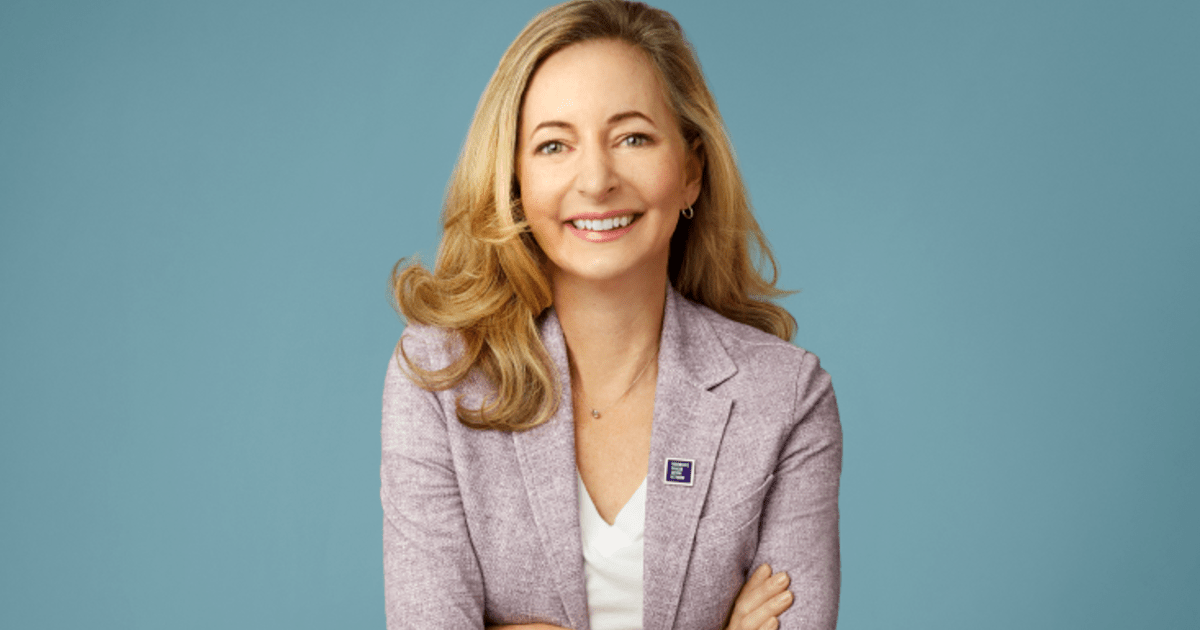Personal essay written by Julie Fleshman, JD, MBA, president and CEO of the Pancreatic Cancer Action Network
It's clichéd but every bit the truth for me to say that everything happens for a reason. If my father hadn't lost his battle to pancreatic cancer, which led me to become the president and CEO of the Pancreatic Cancer Action Network (PanCAN), I don't know that my story would be the one that I'm sharing. And every day, but especially every October, I'm reminded of how fortunate I am that my breast cancer was caught early. I know that my work and focus on early detection for others helped keep me vigilant and I know that everyone is not this lucky.
Read MoreI was given options, including surgery, which I opted to do just a month after my diagnosis and it left me cancer-free. I also had genetic testing done standard for breast cancer patients to determine what treatments might be best for me and to understand my family's risk of certain kinds of cancer.
Luckily, I found out I do not have any of the genes currently connected to breast or pancreatic
cancer. With that experience, I am so incredibly grateful to the breast cancer advocates who had come before me and pushed for early detection and better treatments for breast cancer. I want the same for pancreatic cancer patients.
At PanCAN, we are fierce advocates about early detection. Pancreatic cancer is one of the deadliest cancers with only an 11% five-year survival rate. It's the third leading cause of cancer-related death in the U.S. and on track to become the second leading cause. It's not easy to detect pancreatic cancer early because the location of the pancreas deep in the abdominal cavity hinders detection and the symptoms are vague. So sadly, the disease is often diagnosed too late, when the cancer has spread and surgery is not an option. Unlike the majority of breast cancer patients, most pancreatic patients are given little hope.
Detecting Pancreatic Cancer Early Is Crucial
There is still no screening test to detect pancreatic cancer early. It's heartbreaking to think that if only we could detect it earlier, more patients would be eligible for surgery to remove their tumors which would lead to significantly higher survival rates.
Once diagnosed, there are few treatment options. And because the disease is significantly more resistant to chemotherapy than other cancers, it can be difficult to treat in its later stages. Despite the fact that there is an urgent need for better outcomes for pancreatic cancer, research is often not prioritized because pancreatic cancer affects a relatively small population compared to other cancers, like breast cancer, and clinical research is risky due to the high failure rate.
This month, I am reminded that I'm not just the CEO of PanCAN I'm also a breast cancer survivor.
This experience reinforces my appreciation for patient advocacy especially the PanCAN Patient Services team who provide free resources to patients and healthcare professionals and can help anyone patients, their caregivers, friends and family navigate this journey.
The breast cancer community has inspired people from all over the world to stay up to date on their mammograms and to make sure they're aware of their family history. You can't go through October without seeing the color pink athletes wear pink uniforms to nationally broadcast games, the White House turns pink, and brands do their part by creating special pink merchandise all to raise awareness and funds for breast cancer research.
The Courage to Be You: Meet Survivor Ericka Hart
Breast Cancer Awareness Month sets the stage for November, which is Pancreatic Cancer Awareness Month. Across the nation, pancreatic cancer advocates don the color purple in an effort to make the public aware of the disease so people can advocate for themselves and their health. I only hope that we can get to the same level of awareness as breast cancer, and that one day we'll have an early detection strategy for pancreatic cancer. I take notes from the community that not only inspired me but saved me, too.
This November, I hope the country will join me in raising awareness and funds for pancreatic cancer research. PanCAN is launching a nationwide campaign focusing on "Research for All of Us." We are encouraging the nation to get involved in the fight against pancreatic cancer by sharing inspiring stories that highlight the urgent need for more research and donating to support pancreatic cancer patients and their families. Awareness month for pancreatic cancer is important because it puts a spotlight on the disease and provides an opportunity to educate and engage the public.
I hope that our campaign will save lives and spread awareness like the breast cancer community did for me. As a CEO, a survivor, a caretaker and an advocate, I won't stop until our work is no longer needed. I feel an immense sense of purpose and gratitude for what brought me to this point the good, the bad, the tragic. All of it.
To learn more and donate, visit pancan.org.
Learn more about SurvivorNet's rigorous medical review process.

